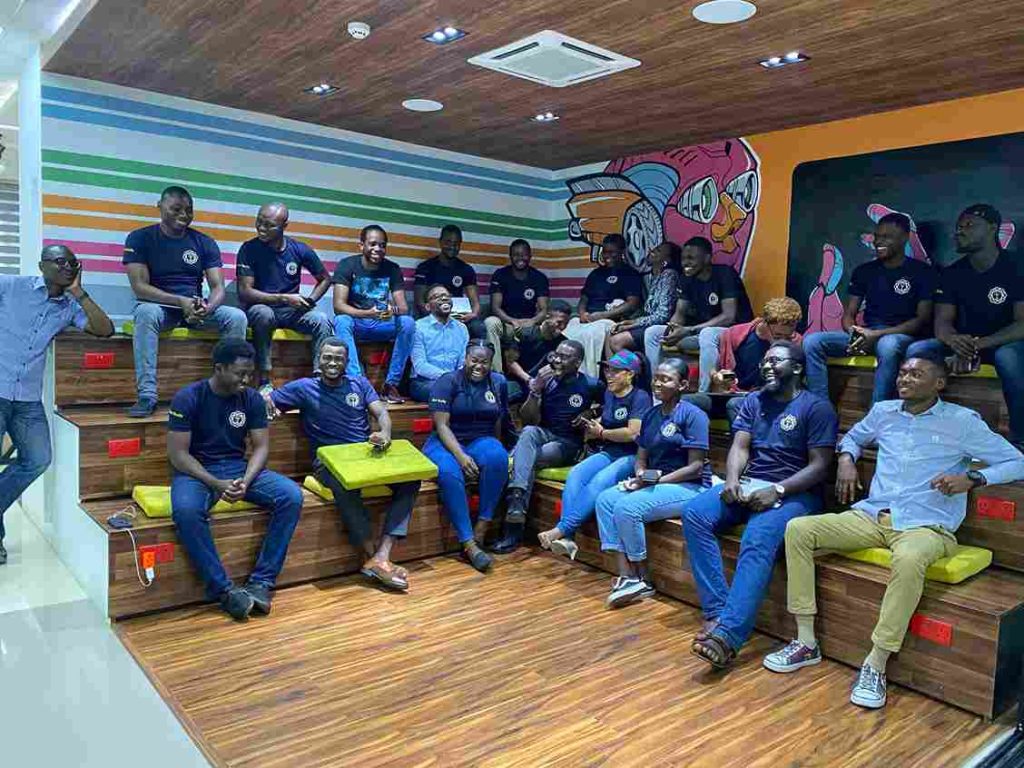The role of a software engineer is more critical than ever, with the demand for skilled professionals reaching unprecedented heights. From crafting innovative applications to solving real-world problems, software engineers are pivotal in shaping our digital future. If you’re aspiring to join this dynamic field, tailored software engineering training programs can accelerate your journey to success.
This article delves deep into the steps to becoming a software engineer, the skills required, and the training opportunities available to set you on the path to a successful and fulfilling career.
Why Choose a Career in Software Engineering?
Software engineering is more than just a profession; it’s a gateway to numerous opportunities. Here’s why it stands out:
- High Demand:
Software engineers are indispensable across industries, from tech startups to Fortune 500 companies. As businesses digitize their operations, skilled engineers are increasingly sought after to create, maintain, and improve technology solutions.
- Lucrative Opportunities: With salaries often exceeding six figures in established markets, software engineering is one of the most financially rewarding careers. Additionally, perks like stock options, bonuses, and flexible work schedules add to its appeal.
- Diverse Roles: From front-end and back-end development to specialized areas like data engineering, AI, and cybersecurity, the possibilities are vast. The diversity ensures that there’s a niche for everyone, whether you prefer building visual interfaces or working behind the scenes.
- Global Relevance: Software engineering skills are universally needed, enabling professionals to work remotely or relocate globally. This flexibility has made it a preferred choice for those seeking work-life balance or international exposure.
Whether you’re building the next big app, working on cutting-edge AI solutions, or maintaining critical systems for large corporations, software engineering offers endless possibilities for innovation and growth.
Comprehensive Training Programs: The Key to Success
Modern training programs are designed to equip aspiring software engineers with the skills and experience they need to excel. Here’s what makes a great software engineering program stand out:
- Structured Curriculum: A well-rounded syllabus covers essential topics like algorithms, data structures, cloud computing, and DevOps. By addressing these fundamentals, learners build a strong foundation that supports career growth.
- Practical Projects: Real-world scenarios help bridge the gap between theory and application. For example, building a functional e-commerce platform or implementing an AI chatbot provides hands-on experience.
- Mentorship: Learning from experienced professionals ensures you gain confidence and guidance in tackling challenges. Mentors also share industry insights and tips that go beyond the classroom.
- Career Support: Programs often include resume building, mock interviews, and job placement assistance to help you land your dream role. Networking opportunities with alumni and hiring partners further enhance your prospects.
Software Development Skills
To excel as a software engineer, you need to master a combination of technical and soft skills. Some of the most critical software development skills include:
- Problem-Solving: Software engineers often tackle complex problems, so being analytical and resourceful is essential.
- Attention to Detail: Small errors in code can lead to significant issues, making precision crucial.
- Collaboration: Working effectively with teams, including developers, designers, and stakeholders, is vital in most projects.
- Adaptability: The tech world evolves rapidly, so staying updated with the latest tools and practices is key.
Developing these skills ensures you’re well-equipped to thrive in a fast-paced and ever-changing industry.
Programming Languages for Software Engineering
Programming languages form the backbone of software development. As an aspiring software engineer, it’s crucial to gain proficiency in languages such as:
- Python: Widely used for web development, data science, and AI applications due to its simplicity and versatility. Python’s extensive libraries, like Pandas and TensorFlow, make it a favorite among developers.
- JavaScript: The go-to language for web development, powering frameworks like React, Angular, and Vue.js. Its versatility extends to both front-end and back-end development with tools like Node.js.
- Java: Popular for building robust enterprise-level applications and mobile apps using Android. Java’s portability across platforms has made it a staple for many developers.
- C#: Essential for game development, especially with Unity, and for building Windows applications. Its strong integration with Microsoft tools makes it a favorite in enterprise environments.
- SQL: Integral for database management and querying large datasets. Mastery of SQL is critical for roles that require working with relational databases.
Each language has its strengths, and the choice depends on your area of focus, whether it’s web development, mobile apps, or enterprise solutions.
Software Engineering Training Institutes
Choosing the right software engineering training institute can make all the difference in your software engineering journey. The best institutes offer:
- Experienced Faculty: Learn from industry professionals with hands-on expertise.
- Comprehensive Curriculum: Covering everything from basic programming to advanced topics like cloud computing and DevOps.
- Hands-On Learning: Emphasis on projects and practical exercises to reinforce theoretical knowledge.
- Career Services: Including job placement assistance, resume reviews, and networking opportunities.
When evaluating an institute, consider factors like alumni reviews, course flexibility, and partnerships with tech companies to ensure it aligns with your goals.
Certifications in Software Engineering
Certifications are a great way to validate your skills and enhance your resume. Some valuable certifications for software engineers include:
- Microsoft Certified: Azure Developer Associate: Demonstrates expertise in cloud application development.
- AWS Certified Developer – Associate: Focuses on building and deploying applications on AWS.
- Oracle Certified Java Programmer (OCJP): Proves advanced knowledge of Java programming.
- Google Professional Cloud Developer: Highlights proficiency in building scalable cloud-based solutions.
Certifications not only boost your credibility but also help you stand out to potential employers. They also showcase your commitment to continuous learning.
Software Engineering Bootcamps
Bootcamps offer an accelerated path to learning software engineering. These intensive programs focus on hands-on skills and practical projects, making them ideal for individuals looking to switch careers or upskill quickly.
Benefits of Software Engineering Bootcamps:
- Time-Efficient: Most bootcamps last 3–6 months, making them faster than traditional degrees.
- Career-Oriented: Designed to prepare you for job readiness with real-world scenarios.
- Affordable: While not cheap, they’re typically more cost-effective than four-year degrees.
Look for bootcamps that have a strong track record of job placements and robust curricula tailored to your career goals.
Success Stories: Transforming Careers
One of the most inspiring aspects of these programs is the success stories they produce.
Take Oluwatoyin, for instance. She transitioned from an underpaid class teacher to a thriving DevOps engineer, driven by her passion for technology and fascination with DevOps. She discovered The Bulb Fellowship through Tech Jewel, a community for women in tech by The Bulb Africa. Inspired by the program’s impact, Oluwatoyin now enjoys a rewarding career with remote work flexibility and encourages other women to explore tech opportunities.
Similarly, Daniel Oyagha, an electrical engineering graduate, transitioned into tech and became a .NET Developer after feeling unfulfilled in his initial job. He joined The Bulb Institute fellowship program, which set him on a successful career path. Today, Daniel works for a multinational company and is steadily establishing himself as a prominent figure in tech.
How to Get Started
Becoming a software engineer is a rewarding journey, and it begins with a few crucial steps:
- Research: Identify training programs that align with your goals and interests.
- Enroll: Commit to upskilling and take the leap into your new career.
- Practice: Dedicate time to mastering your skills through projects and exercises.
- Network: Connect with peers, mentors, and industry professionals to uncover opportunities and build relationships.
Conclusion
The path to becoming a software engineer is filled with challenges and opportunities. With the right training program, dedication, and support, you can build a career that offers innovation, growth, and global relevance.
If you’re just starting your software engineering journey, the Fellowship program at The Bulb Africa is the perfect way to gain hands-on experience, mentorship, and valuable industry connections. Register today and take the first step toward building a successful career in software engineering.
Whether you choose a bootcamp, a certification, or a full-fledged degree program, the key is to remain curious and proactive. Start your journey today and take a step closer to shaping the digital future. Your dream career as a software engineer awaits!

